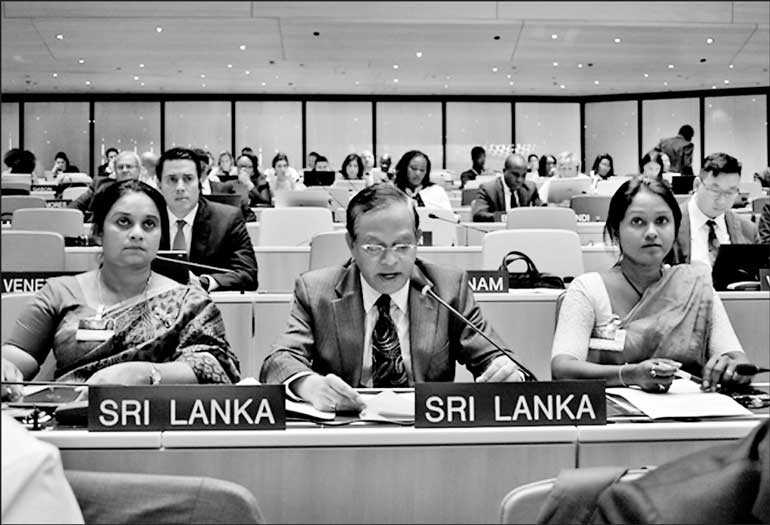Friday Feb 27, 2026
Friday Feb 27, 2026
Saturday, 5 October 2019 00:10 - - {{hitsCtrl.values.hits}}

Speaking at the 2019 Social Forum of the Human Rights Council on 1 October in Geneva, the delegation from Sri Lanka highlighted the importance and transformative power of education, a fundamental human right that lies at the core of the 2030 Development Agenda, in the promotion and protection of human rights of children and youth.
At the multi-stakeholder meeting which brought together government representatives, inter-governmental organisations, civil society and academia, Sri Lanka’s Permanent Representative to the UN in Geneva Ambassador A.L.A. Azeez noted that all children and youth have an equal right to an education in a safe and secure setting irrespective of their gender, family income levels, religion, ethnicity or geographical location, and that a hate-free atmosphere that inculcates the value of inclusivity and diversity in children and youth is a crucial element that helps build lasting peace and contributes to the strengthening of the social fabric. Empowering children and youth through access to quality education and ensuring that no child is left behind is key to achieving Sustainable Development Goals, stressed Ambassador Azeez. He shared Sri Lanka’s experiences in providing education to all and its commitment to promoting and protecting the right to education for all its citizens as enshrined in Sri Lanka’s laws and regulations.
He added that 714 schools provide special education through designated units in Government schools for disabled children and a special scheme of university admissions for disabled persons also exists.
“Such measures have resulted in remarkable social indicators in Sri Lanka in recent years, such as high enrolment rates in education, reduction of school drop-outs and universal primary education reaching 99.7% in 2014,” Azeez re-iterated.